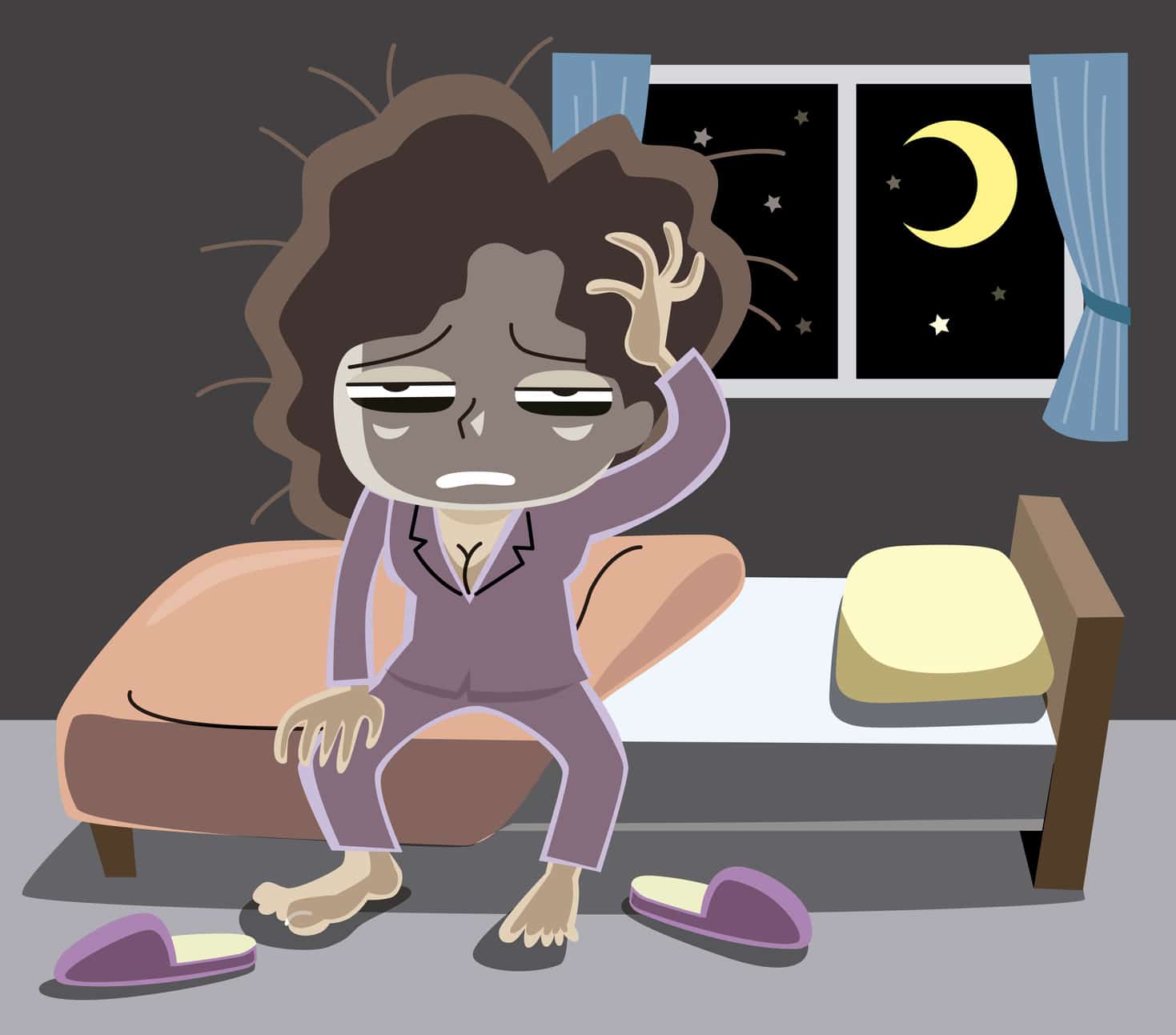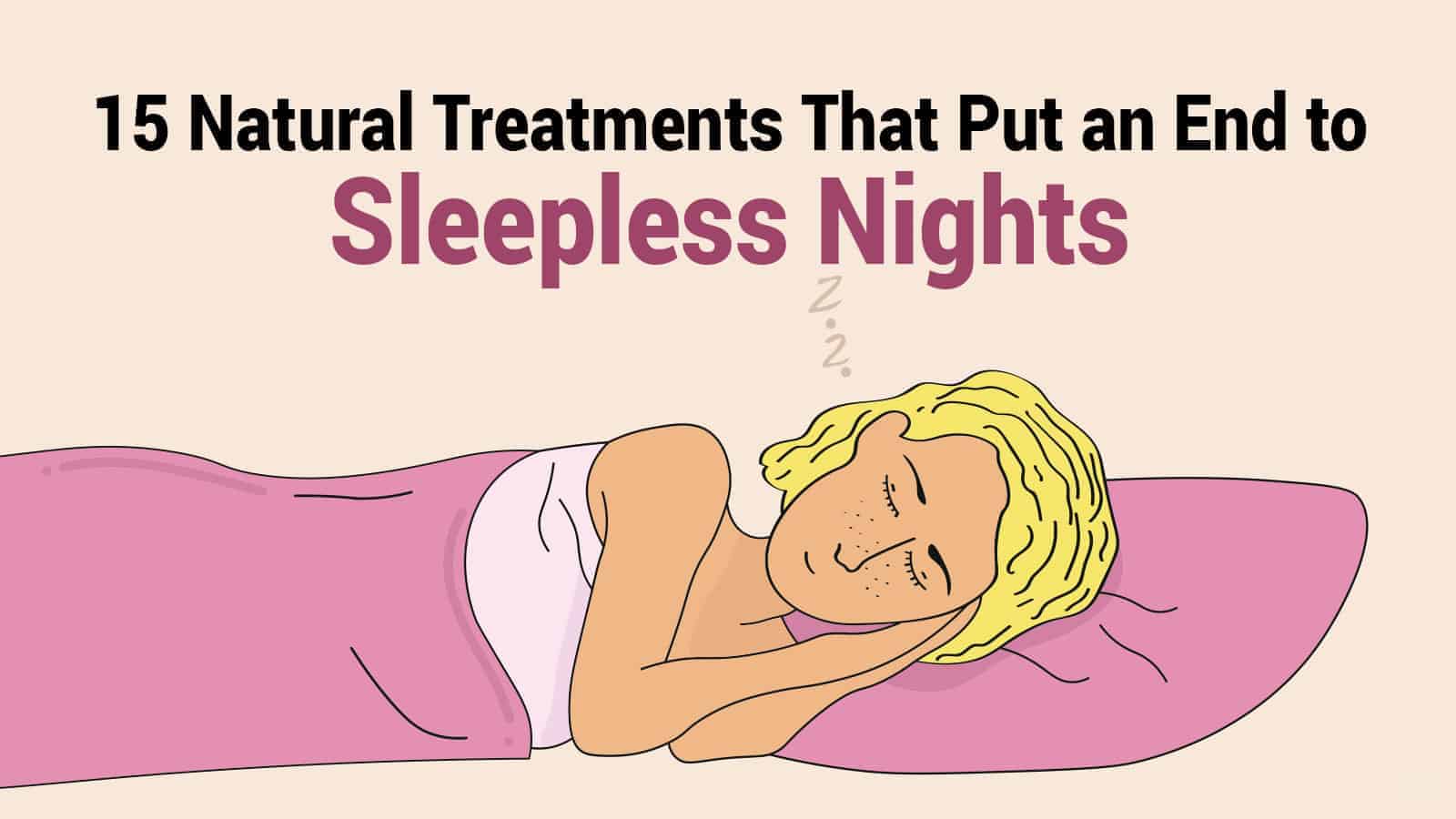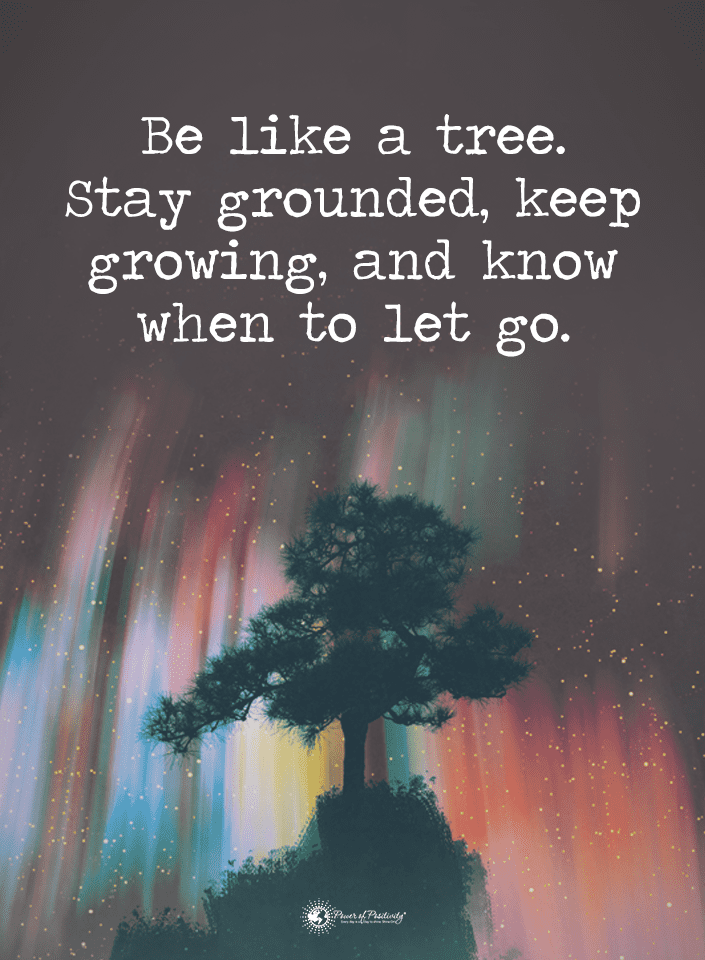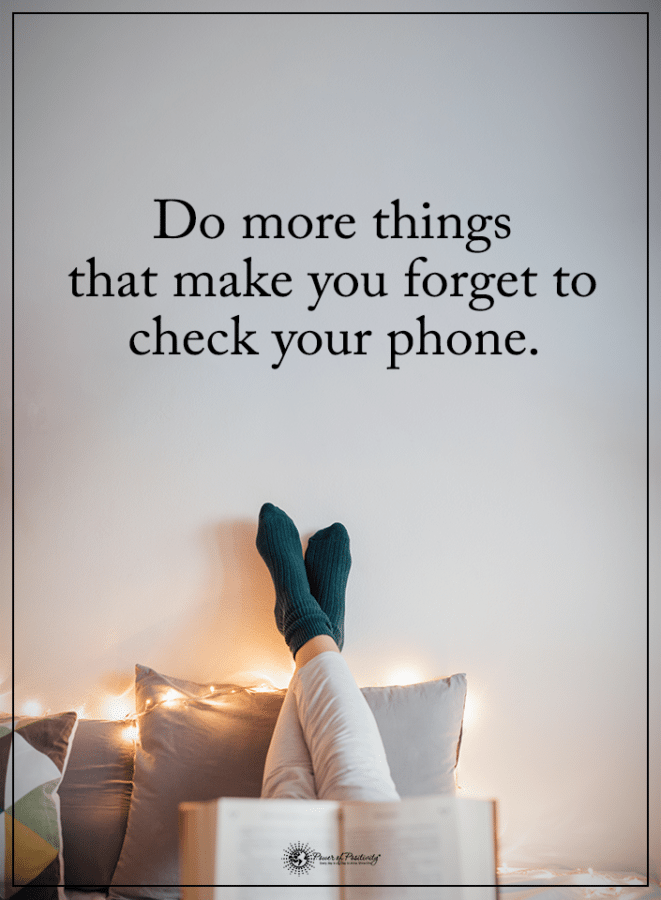Does insomnia ever seem to find you in the middle of the night? Do you have trouble falling asleep and staying asleep? Does it sometimes feel like you might never get to sleep? If so, insomnia might be the reason for your troubles.
Insomnia is a sleep disorder that causes difficulty falling falling asleep and can also erode sleep quality.
For a lot of people, insomnia creates havoc in their day-to-day lives, making them exhausted and making it impossible for them to fall asleep at night. This often leaves them with only a few hours of sleep every night. Thankfully, scientists have broken the secret to insomnia, and there are ways for everyone to get the good night’s sleep they need to function during the daytime. Scientists explain how to make insomnia a thing of the past.
Here Are 5 Ways To Beat Insomnia Forever

“Insomnia is a vertiginous lucidity that can convert paradise itself into a place of torture.” – Emil Cioran
1. Put away your screens
When it’s time for bed, many instinctively reach for the television remote, the tablet, or phones. We scroll mindlessly through our smartphones and tablets in order to help us fall asleep. Of course, we don’t know how many screens make it impossible to fall asleep.
Scientists and researchers have found that the blue light from our phones and tablets interrupts the hormones our bodies naturally make that tell us it’s time to fall asleep. When you reach for your phone to help you fall asleep, you’re telling your brain it’s time to stay awake.
Anne-Marie Chang, Ph.D., corresponding author, and associate neuroscientist, said, “We found the body’s natural circadian rhythms were interrupted by the short-wavelength enriched light, otherwise known as blue light, from these electronic devices. Participants reading an LED-eBook took longer to fall asleep and had reduced evening sleepiness, melatonin secretion, later timing of their circadian clock and reduced next-morning alertness than when reading a printed book.”
Instead, turn your screens off a half an hour before bedtime, and do a relaxing activity like meditation or reading – but not on a tablet!
2. No caffeine or alcohol
You want to stay away from coffee and tea before bedtime. The caffeine will make it hard for you to fall asleep and may disrupt your sleep cycle and wake you up if you do fall asleep before the caffeine hits. However, alcohol is something else that you should stay away from if you want to get a good night’s rest.
Studies prove time and again that alcohol “produces biphasic effects of both stimulation and sedation”, therefore, it doesn’t actually help put you to sleep, but rather “sedates” your brain.
Dr. Matthew Walker, director of the Sleep and Neuroimaging Laboratory at the University of California, Berkeley says, “Alcohol is a class of drugs that we call, “the sedatives.” And what you’re doing is just knocking your brain out. You’re not putting it into natural sleep.”
When you fall asleep due to alcohol, you spend less time getting good REM sleep and more time closer to the surface with a lot of restless sleep.
3. Don’t stay in bed while you’re awake
Get out of bed if you’ve laid there for at least twenty minutes and are no closer to falling asleep than you were at the beginning. “The reason is that your brain very quickly starts to learn the association between your bed being about the place that you’re awake rather than your bed being about sleep,” adds Dr. Walker.
Therefore, if you’re not sleeping, it’s best to get up and try to do a relaxing activity like reading a book or meditating. Don’t eat food, don’t check your email, and definitely don’t turn on a phone or computer screen. After a while, go back into your bedroom and try to fall asleep again.
4. Go to bed at the same time every night
Yes, this even includes the weekend. When you’re trying to beat insomnia, you have to make sure your body’s schedule clock goes back into alignment. Until you’ve successfully made it so that you can fall asleep and stay asleep, there shouldn’t be any late nights at the bar or partying with friends.
Director of sleep services at the Pritikin Longevity Center & Spa, Sam J. Sugar, MD, FACP says this:
“The idea is that you’re creating a habit that the body then wants to stick to, so it tells you that it’s tired at the chosen time.”
Therefore, every day, even on weekends, go to bed at the same time.
5. Sleep in a cool bedroom
If your bedroom is too hot, you’re not going to get the good night’s rest that you crave. According to studies, the perfect bedroom temperature is about 68 degrees Fahrenheit, or 18.5 degrees Celsius. Dr. Walker says this:
“The reason is that your brain and your body need to drop their core temperature by about two or three degrees Fahrenheit to initiate good sleep.”
Therefore, if the room is too warm, then it prevents our bodies from getting a good night’s sleep. Sleeping in a room that’s slightly cooler with a big blanket makes us fall asleep faster and stay asleep.
Final Thoughts on Beating Insomnia for Good
Insomnia isn’t forever; you don’t need medication to fix this issue. Once you can get your body on the right track, you can deviate from strict bedtime schedules. However, these are the best ways to ensure that your body gets the sleep it needs to have a productive and positive day.
On a final note, follow the words of clinical nutritionist Shawn Stevenson:
“Unless you give your body the right amount of sleep, you will never have the body and life you want to have.”
You still have a lot of hard work to do. However, getting a good night’s sleep will take you a step closer to beating insomnia for good.











